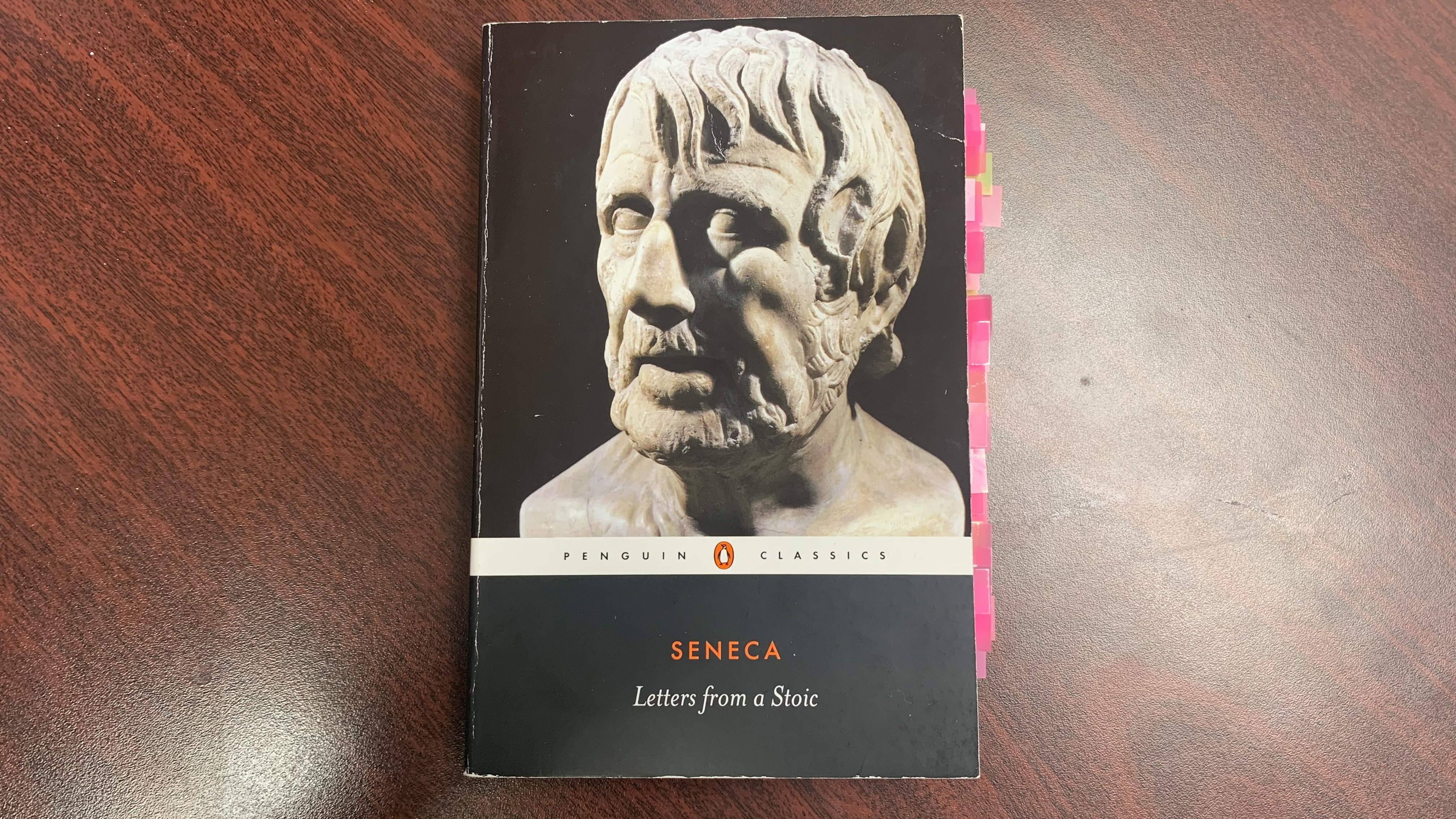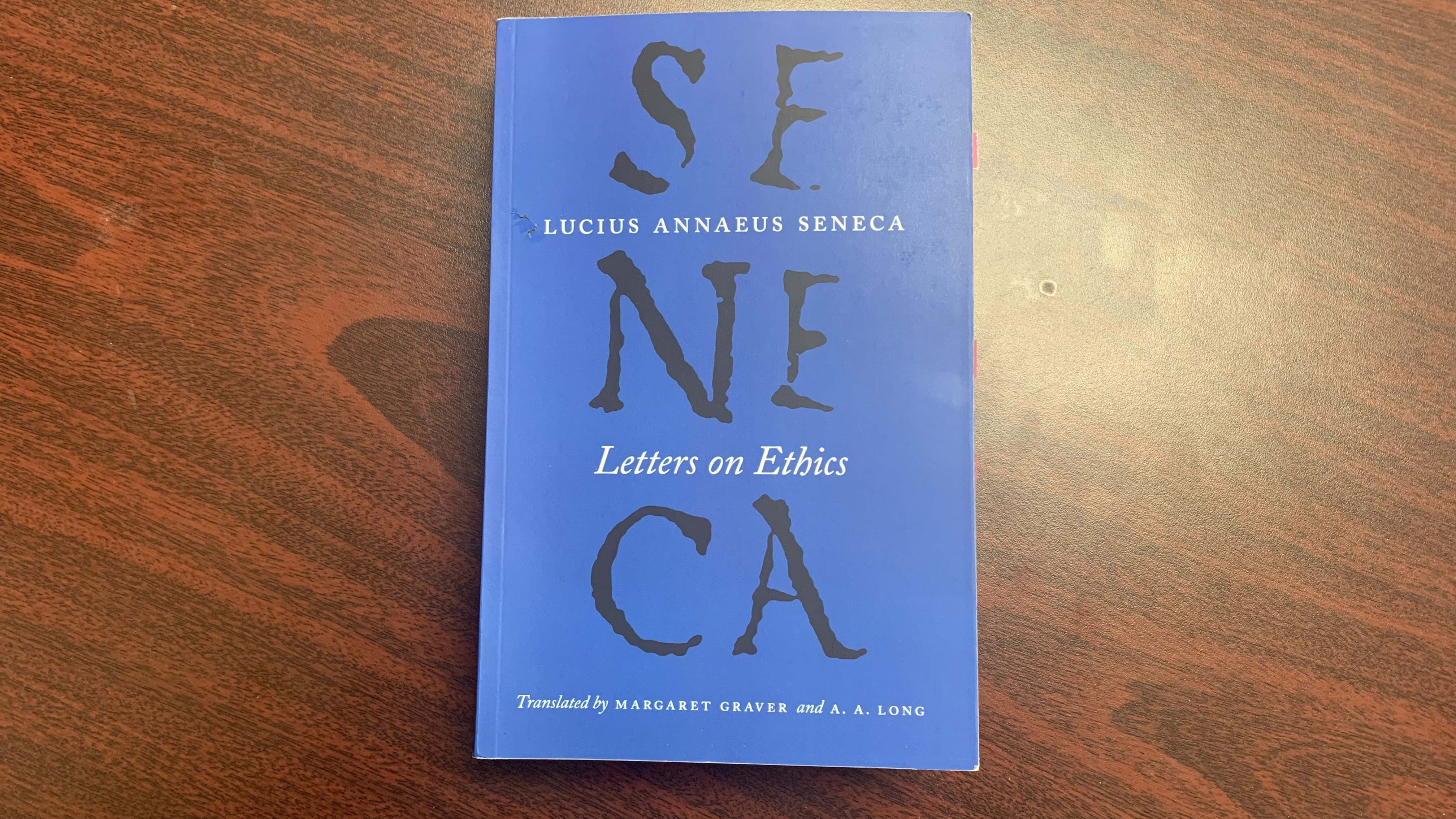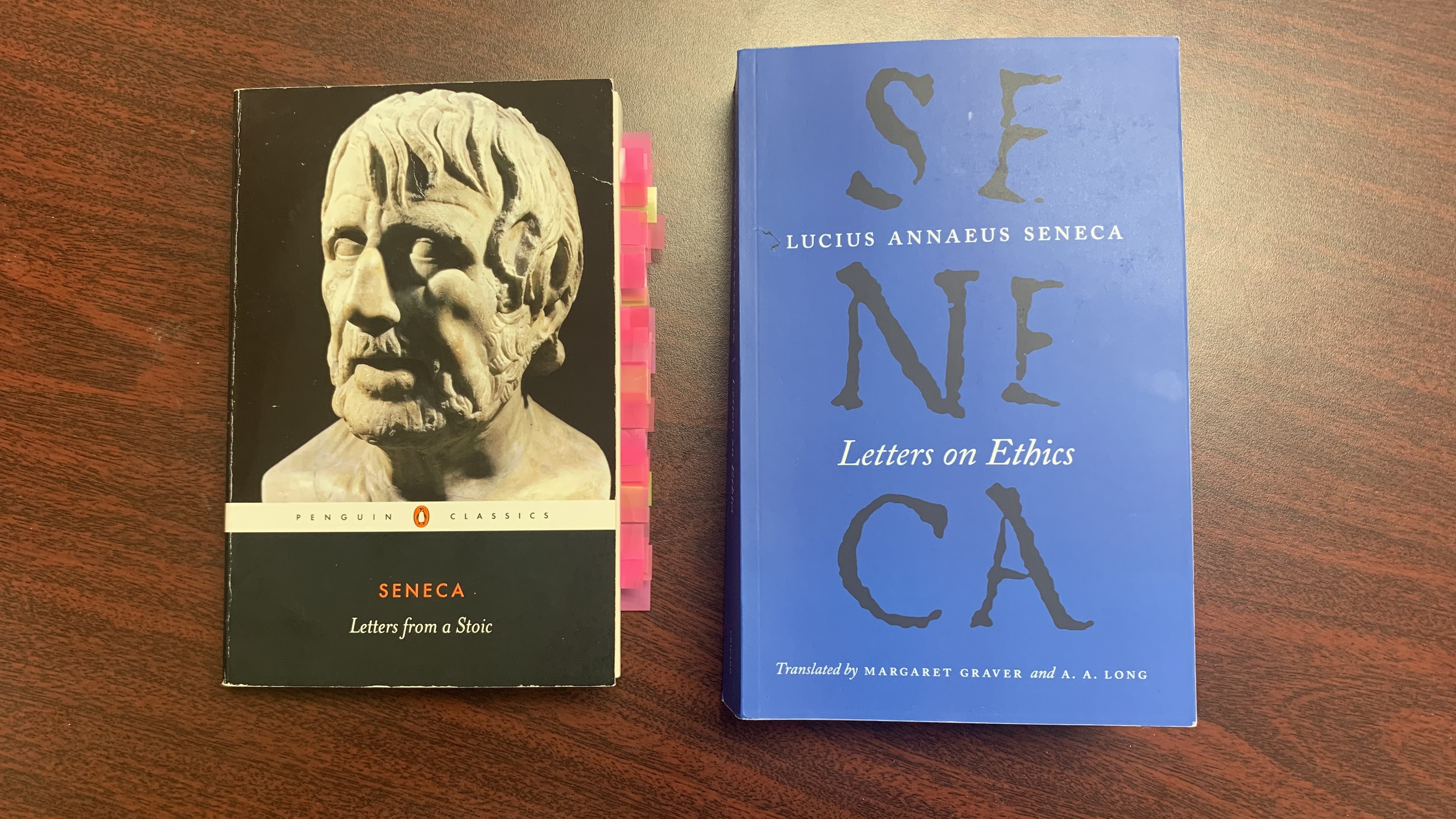
Lucius Annaeus Seneca is the most prolific of the major Stoic philosophers. A Roman politician and advisor to Emperor Nero, Seneca left behind a body of work that eclipses his peers. His essays, plays, and letters serve as a guide for those interested in Stoic philosophy.
But with such an extensive library of works, where do you start? Those wanting to read Seneca are often told to begin with his letters. The most commonly recommended edition is Letters from a Stoic, published by Penguin Classics. This edition contains the selected translation by Robin Campbell, published in 1969.
Having read and enjoyed the Penguin edition, I should acknowledge where it falls flat. The first thing you will notice is that this edition does not begin with the first letter. After reading the introduction, the reader is presented not with Letter #1, but with Letter #2. After continued reading, I soon found out that other letters were missing too. This includes the very last of Seneca’s complete letters.
This is not a matter of letters being lost to time, as many written works of ancient times often are. Of the 124 known letters of Seneca, only 42 are in the Penguin Classics edition.
Naturally, this led me to search for a more complete volume of Seneca’s letters. That’s when I came across the University of Chicago Press.
Recently, the University of Chicago Press has published Lucius Annaeus Seneca’s complete works. This includes four volumes of Seneca’s essays, two volumes of his plays, and a single volume of his letters.

The University of Chicago’s Letters on Ethics contains all 124 of Seneca’s letters. It is the most comprehensive volume of Seneca’s letters that I have come across.
Translated by Margaret Graver and A. A. Long, Letters on Ethics was published in 2015. The table of contents is comprehensive, with each letter having a thematic summary. The Penguin edition does not even list each letter in its table of contents.
Additionally, Letters on Ethics contains fragments of Seneca’s incomplete letters. Academics will also find value in this volume’s extensive notes and references.
Whether you’re new to Seneca or want to read his complete letters, you should buy Letters on Ethics. It is more than worth its price tag.
Did you read the Penguin Classics edition and are wondering what you may have missed? Maybe you want to be more informed before you make your purchase.
Below is my guide to the contents of the Penguin Classics and the University of Chicago editions.
Penguin Classics Edition vs. The University of Chicago Edition

Here’s a comparison between the Penguin Classics and University of Chicago editions of Seneca’s letters. I’ve listed each letter along with its theme. The theme descriptions are those provided by the University of Chicago Press edition.
The letters emphasized in bold text are in the University of Chicago edition, but not the Penguin edition. All remaining letters are in both editions.
Key:
Normal Text = Letter appears in both editions.
Bold Text = Letter does not appear in the Penguin Classics edition
Letter #1: Taking charge of your time
Letter #2: A beneficial reading program
Letter #3: Trusting one’s friends
Letter #4: Coming to terms with death
Letter #5: Our inward and outward lives
Letter #6: Intimacy within friendship
Letter #7: Avoiding the crowd
Letter #8: Writing as a form of service
Letter #9: Frienship and self-sufficiency
Letter #10: Communing with oneself
Letter #11: Blushing
Letter #12: Visiting a childhood home
Letter #13: Anxieties about the future
Letter #14: Safety in a dangerous world
Letter #15: Exercises for the body and the voice
Letter #16: Daily study and practice
Letter #17: Saving for retirement
Letter #18: The Saturnalia festival
Letter #19: The satisfaction of retirement
Letter #20: The importance of being consistent
Letter #21: How reading can make you famous
Letter #22: Giving up a career
Letter #23: Real joy is a serious matter
Letter #24: Courage in a threatening situation
Letter #25: Effective teaching
Letter #26: Growing old
Letter #27: Real joy depends on real study
Letter #28: Travel is no cure for depression
Letter #29: A disillusioned friend
Letter #30: An Epicurean on his deathbed
Letter #31: Our mind’s godlike potential
Letter #32: Steadiness of aim
Letter #33: The use of philosophical maxims
Letter #34: Willingness is the key
Letter #35: Learning to be a friend
Letter #36: Helping another maintain his commitment
Letter #37: Service to philosophy is true freedom
Letter #38: Fewer words achieve more
Letter #39: Healthy and unhealthy desires
Letter #40: Oratory and the philosopher
Letter #41: God dwells within us
Letter #42: Good people are rare
Letter #43: Being the subject of gossip
Letter #44: Noble birth
Letter #45: A gift of books
Letter #46: A book by Lucilius
Letter #47: How we treat our slaves
Letter #48: Tricks of logic
Letter #49: Remembering old times
Letter #50: Blindness to one’s own faults
Letter #51: The party town of Baiae
Letter #52: Good learners and good teachers
Letter #53: A bad experience at sea
Letter #54: A near-fatal asthma attack
Letter #55: Passing the home of a recluse
Letter #56: Noisy lodgings above a bathhouse
Letter #57: A dark tunnel
Letter #58: A conversation about Plato
Letter #59: Steadiness of joy
Letter #60: Our prayers are all amiss
Letter #61: Preparing for death
Letter #62: Living the inner life
Letter #63: Consolation for the death of a friend
Letter #64: Our predecessors in philosophy
Letter #65: Some analyses of causation
Letter #66: All goods are equal
Letter #67: All goods are choiceworthy
Letter #68: The uses of retirement
Letter #69: Combating one’s faults
Letter #70: Ending one’s own life
Letter #71: Life’s highest good
Letter #72: Finding time for study
Letter #73: Gratitude toward rulers
Letter #74: Only the honorable is good
Letter #75: What it means to make progress
Letter #76: Some proofs that only the honorable is good
Letter #77: Facing death with courage
Letter #78: Coping with bodily pain
Letter #79: A trip around Sicily brings thoughts of glory
Letter #80: A quiet day at home
Letter #81: Gratitude for benefits received
Letter #82: Syllogisms cannot make us brave
Letter #83: Heavy drinking
Letter #84: The writer’s craft
Letter #85: Some objections to Stoic ethics
Letter #86: The rustic villa of Scipio Africanus
Letter #87: Poverty and wealth
Letter #88: The liberal arts
Letter #89: The divisions of philosophy
Letter #90: The beginnings of civilization
Letter #91: A terrible fire at Lyon
Letter #92: What we need for happiness
Letter #93: A premature death
Letter #94: The role of precepts in philosophy
Letter #95: The role of general principles
Letter #96: Complaints
Letter #97: A trial in the time of Cicero
Letter #98: The power of the mind
Letter #99: Consolation for the death of a child
Letter #100: A book by Papirius Fabianus
Letter #101: A sudden death
Letter #102: Renown and immortality
Letter #103: Those we meet may be dangerous to us
Letter #104: Why travel cannot set you free
Letter #105: How to avoid being harmed by other people
Letter #106: The corporeal nature of the good
Letter #107: An unexpected misfortune
Letter #108: Vegetarianism and the use of literature
Letter #109: Mutual aid among the wise
Letter #110: False fears and mistaken ideas of wealth
Letter #111: What we lose with our tricks of logic
Letter #112: A difficult pupil
Letter #113: Is a virtue an animate creature?
Letter #114: A debased style of eloquence
Letter #115: Fine language will not help us
Letter #116: The Stoic view of emotion
Letter #117: Propositions and incorporeals
Letter #118: A proper definition for the human good
Letter #119: Natural wealth
Letter #120: How we develop our concept of the good
Letter #121: Self-awareness in animate creatures
Letter #122: The hours of day and night
Letter #123: Resisting external influences
Letter #124: The criterion for the human good
Fragments
Referenced Works:
Letters on Ethics by Lucius Annaeus Seneca (University of Chicago Press)
Letters from a Stoic by Lucius Annaeus Seneca (Penguin Classics)
Socials:
Twitter: twitter.com/bryceallenreads
Glasp: glasp.co/#/bryceallen/
You can support my writing by buying me a coffee!
You can also show support by purchasing from the affiliate links in this article.
